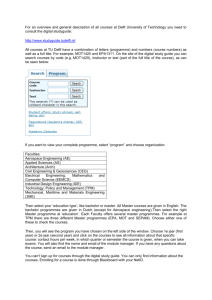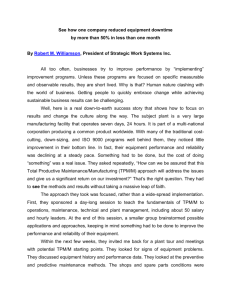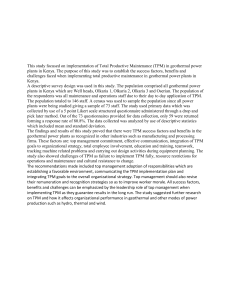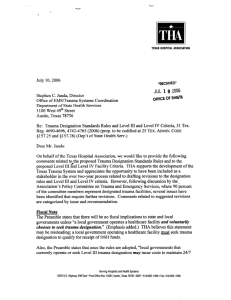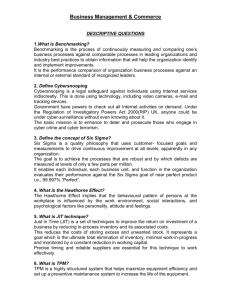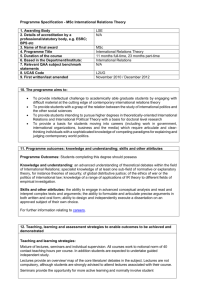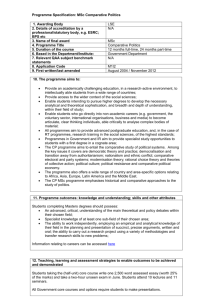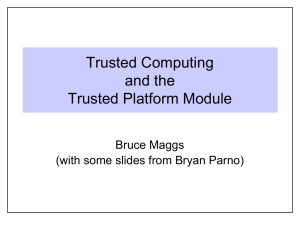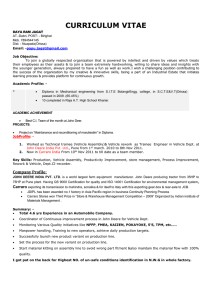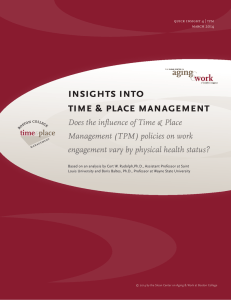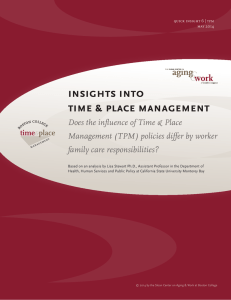PowerPoint-presentatie
advertisement
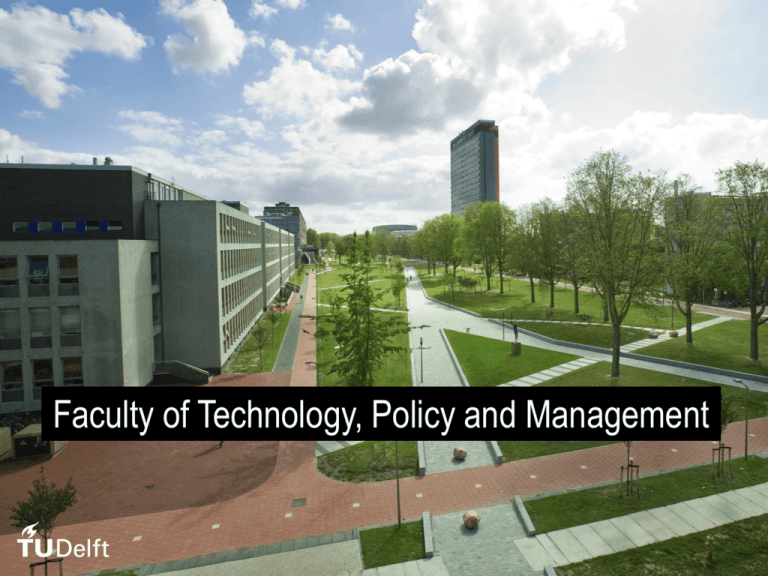
Faculty of Technology, Policy and Management TPM’S MISSION: COMPREHENSIVE ENGINEERING The Faculty of Technology, Policy and Management combines insights from the engineering sciences with insights from the humanities and the social sciences. The Faculty’s mission is to develop robust models and designs in order to solve the complex challenges of today’s networked, urbanized knowledge society. Technology, Policy and Management 2 ORGANIZATION CHART 3 FACTS AND FIGURES TPM staff year-end 2014 (FTE) • Academic staff 275 • Support staff 56 Total number of employees: 331 Student Intake 2014 • Bachelor 236 • Master 130 Total new intake 366 Total active students: ca. 1.254 Total PhD students: 192 Technology, Policy and Management 4 RESEARCH DEPARTMENTS 5 RESEARCH HIGHLIGHTS • NWO/Shell grants for 3 research projects in the field of smart energy systems • 2 NWO grants for Supply Chain Compliance and Border Management • ERC grant for Economic Underpinnings of Social Technological Innovation • 6 NWO grants for project in the field of Responsible Innovation • ERC grant for global terrorism and collective moral responsibility • Start of a new research programme Engineering Social Technologies for a Responsible Digital Future 6 Educational programmes Technology, Policy and Management 7 THE DEGREE PROGRAMMES OF TPM • Bsc ‘Technische Bestuurskunde’ (Systems Engineering, Policy Analysis and Management) • MSc Systems Engineering, Policy Analysis and Management • MSc Management of Technology • MSc Engineering and Policy Analysis Technology, Policy and Management 8 THE DEGREE PROGRAMMES OF TPM CHARACTERISTICS • Interdisciplinary • Sciences and technology • Policy and management • International orientation • Close relationship to research • Public and private sector Technology, Policy and Management 9 INTERFACULTY / INTERUNIVERSITY DEGREE PROGRAMMES • MSc Transport, Infrastructure and Logistics (with Civil Engineering and Mechanical Engineering) • MSc Information Architecture (with Electrical Engineering, Mathematics and Computer Science) • MSc Industrial Ecology (with Applied Sciences, University of Leiden, Erasmus University Rotterdam) Technology, Policy and Management 10 INTERFACULTY EDUCATION • Profession-oriented knowledge in fields as economics, management and law • Skills (e.g. presenting, reporting) and languages • Reflection on technology (e.g. ethics, philosophy and history of science) • Professionalization of teaching (Interfaculty Centre for Education Focus) Technology, Policy and Management 11 ONLINE EDUCATION MOOC’s (Massive Online Open Courses) • Next Generation Infrastructures • Responsible Innovation • Solving Complex Problems • Framing • Leadership for Engineers • Sustainable Urban Development More than 140.000 subscriptions for TPM online education ProfEd’s (professional Education via EdX) • Economics of Cyber Security • Text mining and Analytics Online master courses (part of EPA master curriculum) • Systems Modelling • Policy Analysis • Technology Development and Impact Analysis 12 PHD-PROGRAMME • Best Practices Cycle (2 blocks) Five day course TPM research methods and skills Deeper investigation of research methods relevant for the specific research programmes • Demand driven symposia • Peer groups • Coaching by experienced researchers (e.g. on writing a research proposal) Technology, Policy and Management 13 INTERNATIONAL COOPERATION • • • • • • • TPM-Consortium (MIT, George Mason University, Carnegie Mellon University, Instituto Superior Técnico Lisboa) Global Technology of Management Consortium (University of Maryland, CERAM Sophia Antipolis, Asian Institute of Technology, Korea Advanced Institute of Science and Technology, National Tsing Hua University) Shell Project Academy, (Shell Global Solutions, University of Cranfield (GB), University of Texas at Austin (USA), Queensland University of Technology at Brisbane (Aus) Harbin University of Technology Council of Engineering Systems Universities Idea League UNITECH Partners Technology, Policy and Management 14 TPM for Comprehensive Engineering 15
